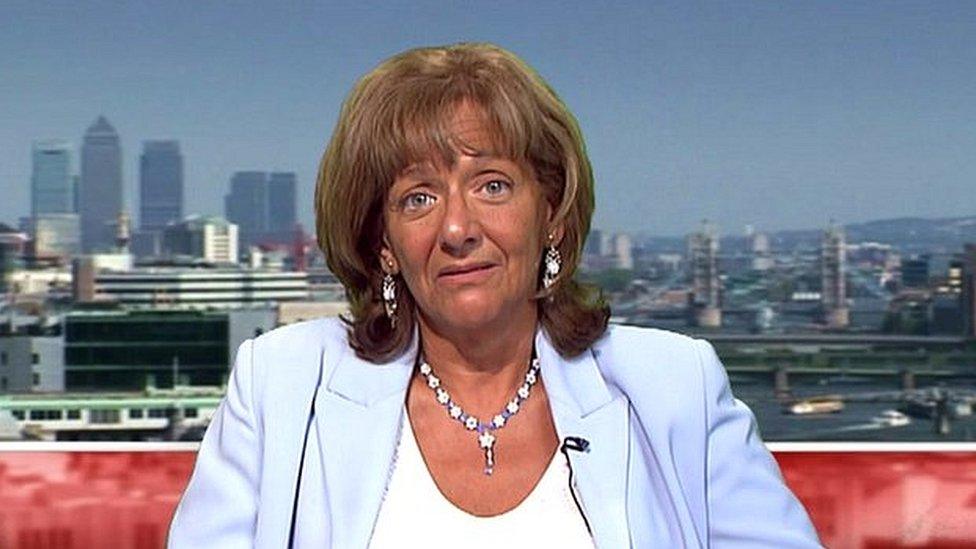Women's pension changes were clear, says Ros Altmann
- Published

A government minister has insisted that letters sent to women informing them of changes to their state pension age were clear.
Thousands of women have complained that they were not given proper notice.
Women born after 6 April 1951 should all have been warned that they would not get a state pension at 60, as their retirement age is gradually raised.
Pensions Minister Baroness Altmann said adverts were also placed in papers and magazines about the changes.
However, a campaign has resulted in a petition signed by 137,000 people and a series of hearings and debates in Parliament - the latest of which is on Monday.
Fairness debate
Under the 1995 Pensions Act, the government decided that the pension ages of both men and women would be equalised by 2020. Previously, women retired at 60, while men retired at 65.
In 2011, state pension ages were raised at an even faster rate.
Some of those born between April 1951 and 1960 will not qualify for a pension until the age of 66.
Campaigners belonging to Women Against State Pension Inequality (WASPI) say some women had very little notice that they would not get a pension at 60.
They are calling for "transitional arrangements" for those affected.
Baroness Altmann called for a slower timetable in 2011 before she was pensions minister.
However, she said that agreeing to the campaigners demands would, in itself, be unfair to younger women. She told the BBC that the state pension age for women had been rising for six years and was now at 63, and that reforms in April meant it would be more generous.
She added that the letters sent to women had been clear, although she accepted that not everyone would have received them if the Department for Work and Pensions had out of date contact details.

When will you get a state pension?

The government's state pension calculator is available here., external